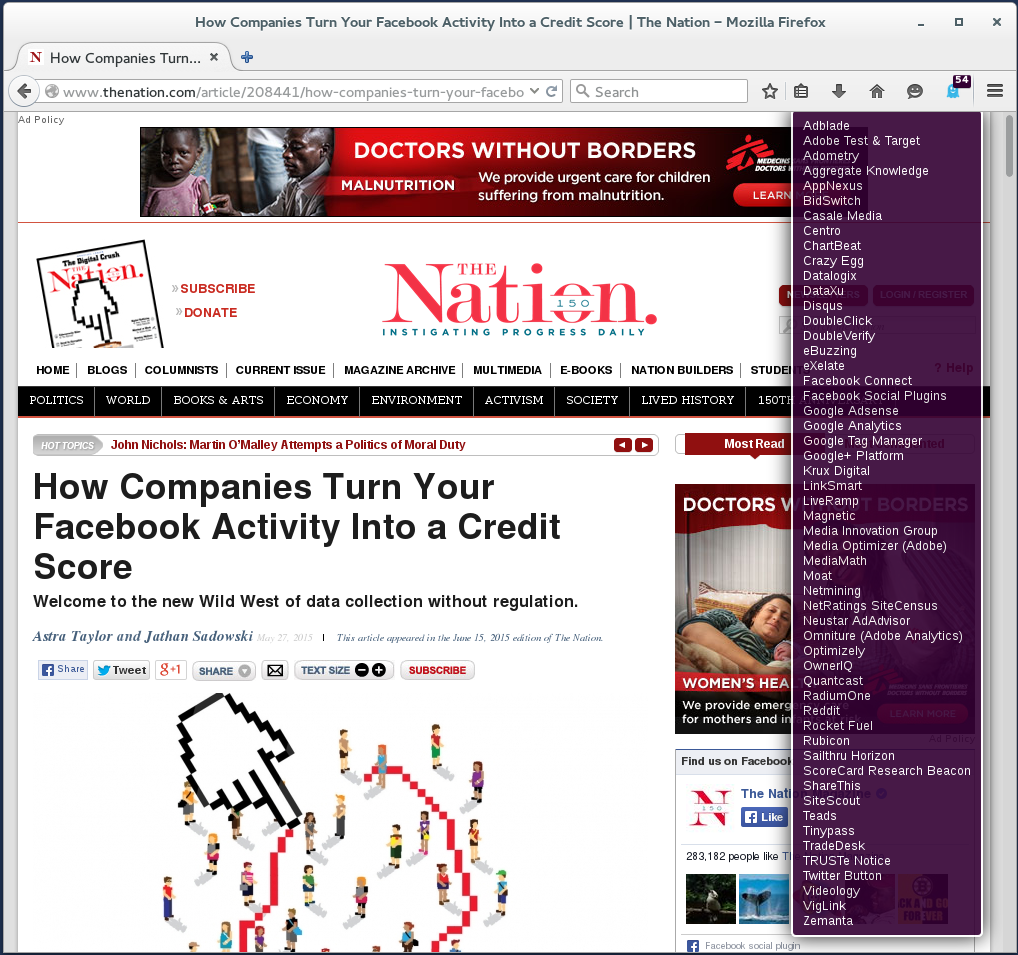Don Marti
Mon 01 Jun 2015 09:36:26 PM PDT
News sites and the tracking game
Here's a screenshot of a recent story from The Nation. Click to see full size and check out the purple bar on the right.
Yes, Ghostery detects 54 trackers on a story about web tracking. Isn't that special?
But that's not the point.
First, go back to that story and read the whole thing. If your direct experience of adtech comes from inside Marketing, from the artisan-cheeseburger-eating point of view, you're not seeing the ads that the rest of the world sees. Not only do a lot of adtech and malware look the same to users, many of the real ads are deceptive. The ad blocking problem makes more sense when you see some of the actual hinky ads out there that are motivating people to block.
Second, The Nation is rational to let those 54 trackers raid its audience. Really, even though data leakage is a bigger problem for high-quality sites than ad blocking.
Henk Kox, Bas Straathof, and Gijsbert Zwart, at the CPB in the Netherlands, explain, in Targeted advertising, platform competition and privacy.
We find that more targeting increases competition and reduces the websites' profits, but yet in equilibrium websites choose maximum targeting as they cannot credibly commit to low targeting. [emphasis added] A privacy protection policy can be beneficial for both consumers and websites.
High-value content sites are participating in ad targeting systems, even though it would be in their interest to work more like the magazine business.
If websites could coordinate on targeting, proposition 1 suggests that they might want to agree to keep targeting to a minimum. However, we next show that individually, websites win by increasing the accuracy of targeting over that of their competitors, so that in the non- cooperative equilibrium, maximal targeting results.
An individual site can't become trustworthy in an untrustworthy medium.
So what can The Nation, or any other publisher in the same situation, do about the tracking problem? Regulation might work in the Netherlands, but in the USA, it would just be subject to regulatory capture by surveillance marketers. Sites need a workable fix, a way to turn users' state of creeped-out-itude into action.
Sites can help users get protected
That's where tracking alerts come in. A high-reputation site such as The Nation can help move users from more to less trackable without interfering with existing third-party services.
Notify users when they're subject to tracking, even with a small notice. When that works...
Start adding more detailed tracking warnings, in place of confusing opt-out language. Finally...
Put some stories behind a "reverse tracking wall" to reward users who get protected.
Helping users get started with tracking protection is one or two lines of JavaScript. Easier than adding a social button. Cut, paste, save Journalism, and still have time for that artisan cheeseburger.
